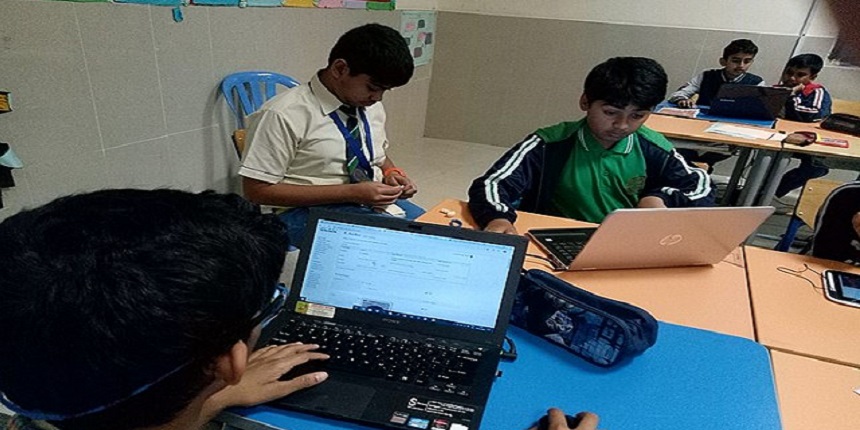CBSE Credit System: Class 9-12 students to study more subjects; changes proposed
Anu Parthiban | February 6, 2024 | 02:17 PM IST | 2 mins read
NCrF: CBSE Class 9-10 students should study 10 subjects - 3 languages and 7 subjects - to be declared pass and earn 40 credits, as per the proposed scheme.

NEW DELHI: The Central Board of Secondary Education (CBSE) has proposed changes in the academic framework for Classes 9 to 12 and is set to notify the modification in the credit system in line with the National Education Policy (NEP 2020). Number of compulsory subjects, learning hours have been increased, as per the draft guidelines.
All CBSE schools were asked to review the National Credit Framework which has been prepared by the UGC to provide flexibility and mobility to students and provide suggestions by December 5, 2023.
The NCrF guidelines for schools “focuses on developing conceptual understanding and critical skills among students. For this purpose, school education is imagined as a flexible, multi-disciplinary endeavour, rooted in the country's ethos that would create self-sufficient learners capable of meeting the challenges of the 21st century,” the proposal read.
CBSE Class 9-10 credit system
Here are some of the key features of the proposed credit system for CBSE Class 9.
Compulsory subjects - As per the existing scheme, students of Classes 9 to 10 have to pass 5 subjects - 2 language and 3 subjects - to be declared pass. However, the guidelines suggest that the students should pass in 3 languages, of which at least two should be native Indian language and 7 subjects. Students should pass each of the 10 subjects to be declared pass.
The seven subjects include mathematics and computational thinking, social science, science, art education, physical education and well-being, vocational education, and interdisciplinary areas.
Learning hours - The total learning hours have been increased to 1,200 hours as against 1,050 hours in the existing scheme. 120 hours have been allotted for each of three languages and interdisciplinary areas such as environmental education, 150 hours for mathematics and computational thinking, social science, science and vocational education, and 60 hours each for art education and physical education and well-being. A student passing in Class 9 and 10 with 10 subjects, will be eligible for earning 40 credits.
Also read National Credit Framework (NCrF) Decoded: How India’s students will be marked, from Class 5 to PhD
Changes in CBSE Class 11-12 credit system
A Class 11-12 student has to study and pass 6 subjects - 2 languages and 4 subjects - to earn 40 credits. As per the distribution of learning hours, 180 hours have been allotted to two languages, of which one should be Indian native language, and 210 hours for 4 subjects. Those passing 7 subjects will be eligible for 47 credits. The fifth subject is optional.
Compulsory subjects | Hours | Credits |
Subject 1- Language 1 | 180 | 6 |
Subject 2- Language 2 | 180 | 6 |
Subject 3 | 210 | 7 |
Subject 4 | 210 | 7 |
Subject 5 | 210 | 7 |
Subject 6 | 210 | 7 |
Optional Subject 7 | 210 | 7 |
Total | 1,200 | 40-47 |
Students will also be awarded grades in each scholastic subject, as per the proposed scheme. The passed students will be put in a rank order to award grades starting from A1 to D2. Those obtaining E grade will be put under “essential repeat”.
Follow us for the latest education news on colleges and universities, admission, courses, exams, research, education policies, study abroad and more..
To get in touch, write to us at news@careers360.com.